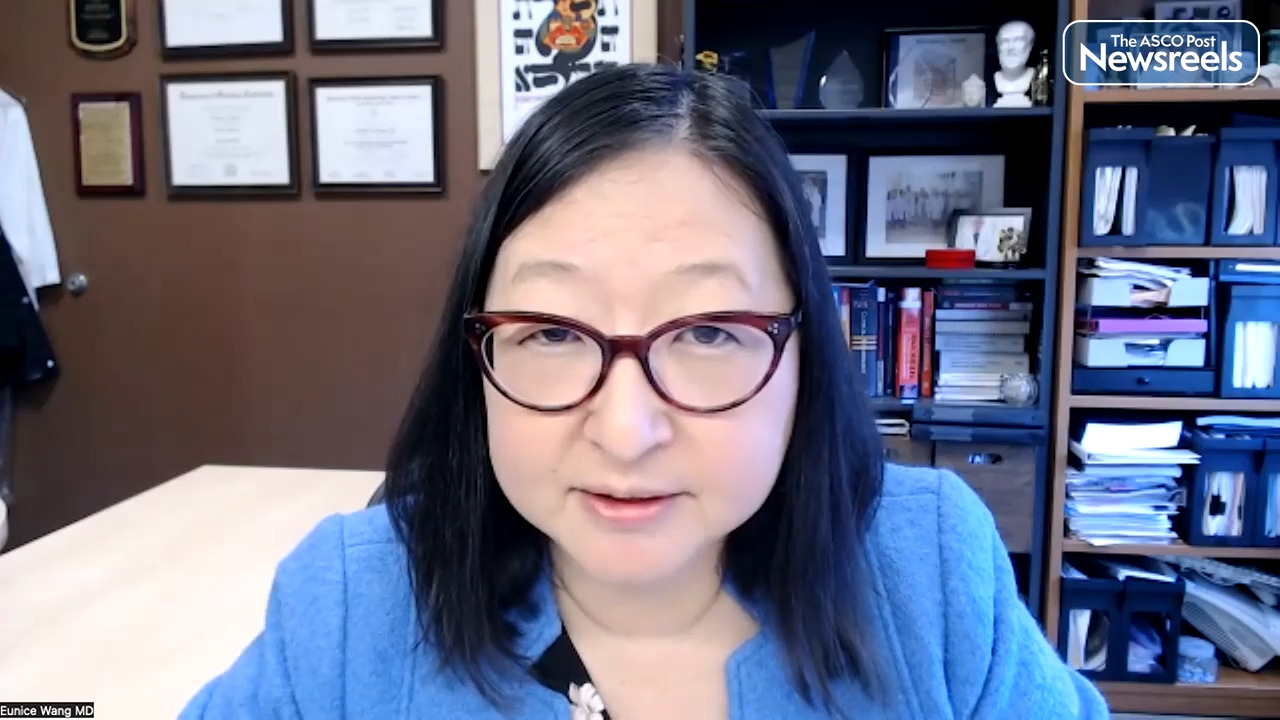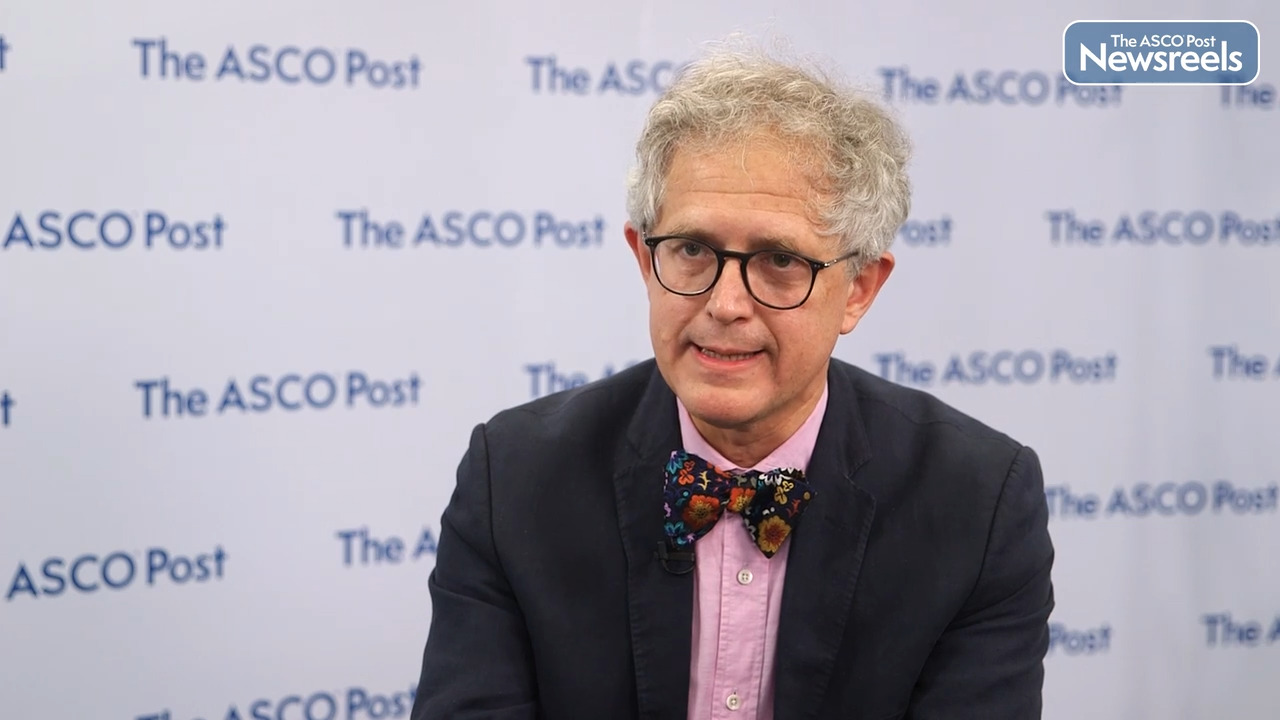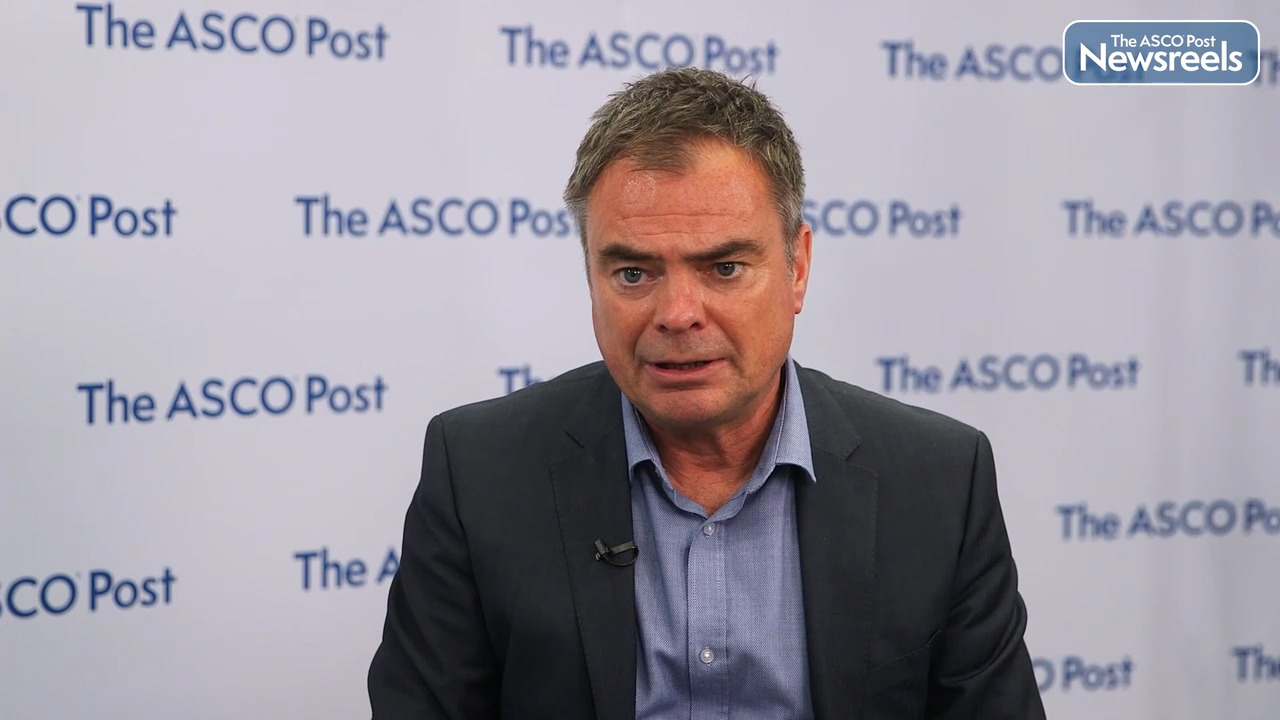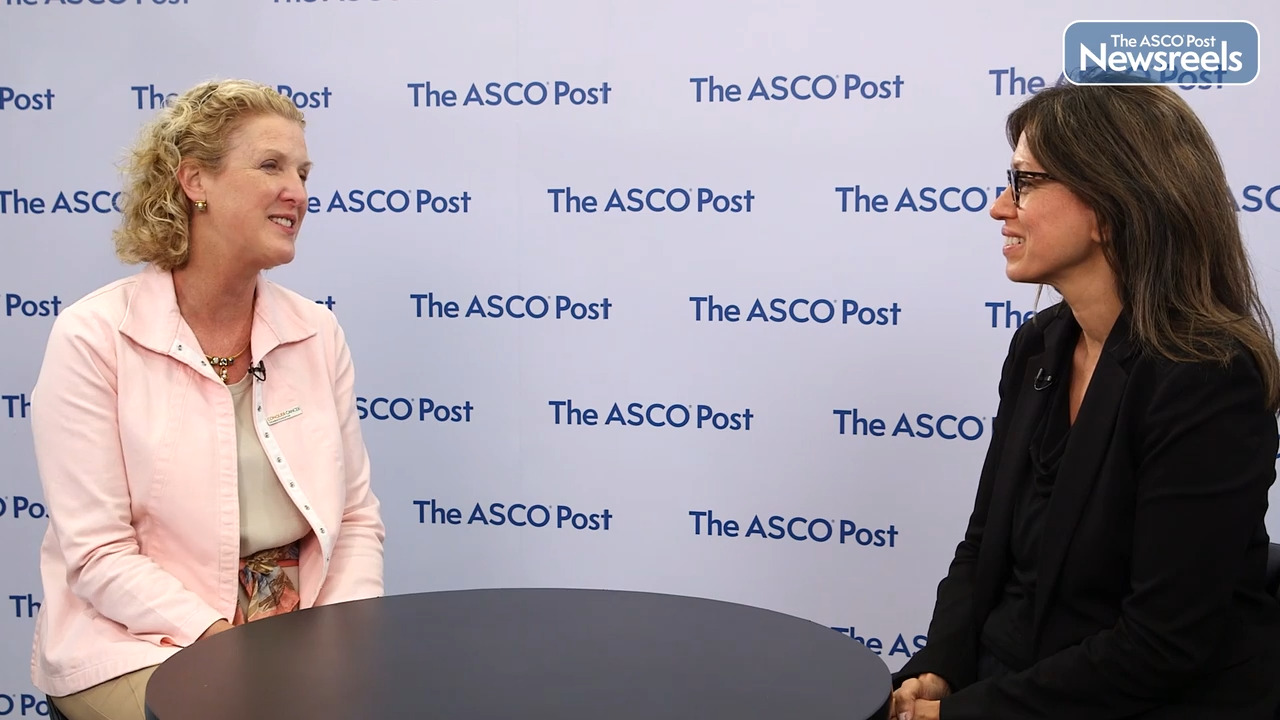Georgina V. Long, MD, PhD, on Melanoma: Distant Metastasis–Free Survival With Adjuvant Pembrolizumab
2022 ASCO Annual Meeting
Georgina V. Long, MD, PhD, of the Melanoma Institute Australia, The University of Sydney, discusses phase III findings from the KEYNOTE-716 study. The trial showed that compared with placebo, adjuvant pembrolizumab significantly improved distant metastasis–free survival in patients with resected stage IIB and IIC melanoma. The findings also suggest a continued reduction in the risk of recurrence and a favorable benefit-risk profile (Abstract LBA9500).
Transcript
Disclaimer: This video transcript has not been proofread or edited and may contain errors.
Keynote 716 is a phase three randomized trial of adjuvant pembrolizumab versus placebo in resected stage 2B and 2C melanoma. Historically from retrospective studies, stage 2B and C melanoma has been thought to be not as high risk as it actually is. In fact, many patients recur at 24 months and beyond, and these patients have very poor outcomes. So I'm reporting the distant metastasis free survival from this trial. We've previously reported on the relapse free survival on two previous analyses. And what we see is pembrolizumab significantly improves the distant metastasis free survival compared with placebo with a hazard ratio of 0.64, this represents a 36% reduction in the risk of recurrence, and a P value of 0.0029. This is highly significant. We also see on the 24 month and the 12 month landmark distant metastasis free survival rates, a significant increase compared with placebo of pembrolizumab. What's more in this study when we look at the subgroups, key subgroups, every subgroup favors pembrolizumab compared with placebo for the distant metastasis free survival, including the T subcategories 3B, 4A and 4B, as well as the US geographical region. We also see a sustained improvement in the relapse free survival. So at this analysis, this is the third analysis for the relapse free survival. It was the first for distant metastasis free survival. We see a hazard ratio of 0.64 and continued separation of the Kaplan-Meier curves for the relapse-free survival, meaning that adjuvant pembrolizumab significantly decreases the risk of recurrence for patients with resected stage 2B and 2C melanoma. So what are the next steps? The next steps are that we will continue to follow up with this trial and look at the overall survival benefit. In the design of this trial, we had crossover at recurrence. So patients were initially randomized to placebo versus pembrolizumab. But if they recurred, they were unblinded. If they were on the placebo arm or on the pembrolizumab arm, and they had their last dose of pembrolizumab six months or further prior, they were eligible to cross over to pembrolizumab. So we'll also be watching for the overall survival in the coming years. The take home message is that adjuvant pembrolizumab significantly improves both the relapse free survival and the distant metastasis free survival, and should be considered for patients with resected stage 2B and 2C melanoma.
The ASCO Post Staff
Eunice S. Wang, MD, of Roswell Park Comprehensive Cancer Center, discusses long-term phase II findings of a trial evaluating crenolanib plus chemotherapy in newly diagnosed adults with FLT3-mutant acute myeloid leukemia. The study showed a composite complete remission rate of 86%. With a median follow-up of 45 months, median overall survival has not been reached. A phase III trial is ongoing (Abstract 7007).
The ASCO Post Staff
Etienne Brain, MD, PhD, of the Institut Curie, discusses phase III findings from the Unicancer ASTER 70s trial, in which patients aged 70 or older with estrogen receptor–positive, HER2-negative breast cancer and a high genomic grade index received adjuvant endocrine therapy with or without chemotherapy. The data did not find a statistically significant overall survival benefit with this treatment after surgery (Abstract 500).
The ASCO Post Staff
Robert Hugh Jones, MD, PhD, of Cardiff University and Velindre Hospital, discusses results from an updated analysis of the FAKTION trial, which showed improved overall survival with fulvestrant plus capivasertib in women with metastatic estrogen receptor–positive breast cancer whose disease had relapsed or progressed on an aromatase inhibitor. The benefit may be predominantly in patients with PIK3CA/AKT1/PTEN pathway–altered tumors, a topic researchers continue to study in the phase III CAPItello-291 trial (Abstract 1005).
The ASCO Post Staff
Timothy J. Whelan, MD, of McMaster University and Hamilton Health Sciences, discusses findings from the LUMINA study, which found that women aged 55 or older who had grade 1–2 T1N0 luminal A breast cancer following breast-conserving surgery and were treated with endocrine therapy alone had very low rates of local tumor recurrence at 5 years. These patients, the research suggests, may be able to forgo radiotherapy (Abstract LBA501).
The ASCO Post Staff
Lisa A. Carey, MD, of the University of North Carolina Lineberger Comprehensive Cancer Center, and Shanu Modi, MD, of Memorial Sloan Kettering Cancer Center, discuss the phase III findings from the DESTINY-Breast04 trial, which compared fam-trastuzumab deruxtecan-nxki (T-DXd) vs treatment of physician’s choice (TPC) in patients with HER2-low unresectable and/or metastatic breast cancer. T-DXd is the first HER2-targeted therapy to demonstrate clinically meaningful improvement in progression-free and overall survival compared with TPC in this patient population, regardless of hormone receptor or immunohistochemistry status or prior use of CDK4/6 inhibitors (Abstract LBA3).





